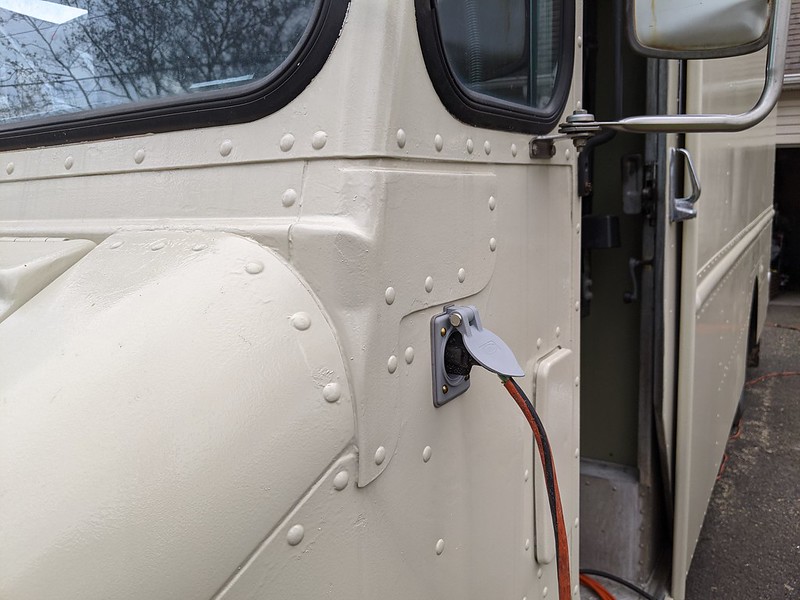I'm going to add something to the mix....using the normal 120v plug for light duty uses in a van or camp trailer/cargo trailer conversion works well for battery charging, normal loads etc, but can fall a bit short IF you use an electric space heater and/or microwave oven, especially at the same time.
As long as you understand the limitations, it should work well for you. It's a good idea to have some kind of circuit breaker or fuse in the rig to help protect your wiring and the outlet you are plugged into.
I recommend that anyone who does this should also carry an RV adapter (AKA dogbone adapter) so they can plug their shore cord into the RV pedestal (or panel) 30 amp receptacle...the reason for this is that the required GFCI outlet on some power panels will detect even the slightest ground fault in your rig, or if the cord is laying on wet pavement, and will shut off your power. Sometimes the simple act of stepping into or out of the vehicle while touching the metal frame or handrail, while your foot or shoe is touching the ground, is enough to trip the GFCI outlet in the power pedestal and you come back later to find your rig has no shore power and you cant figure out what happened....been there done that!
The 30 amp RV outlet typically does NOT have a GFCI circuit so your power will be more reliable when conditions are 'flaky'...although local codes in some areas might require GFCI on an RV receptacle....
Obviously, your rig should have its OWN 15 or 20 amp breakers to the shore power connection and preferably its own GFCI protection if you choose to use a 30 amp RV receptacle.
You can buy or fabricate a 20 amp inline breaker box (near the plug end) if you really want to adhere to NEC codes to protect the shore cord to the rig, but I have not found this to be necessary.












































































